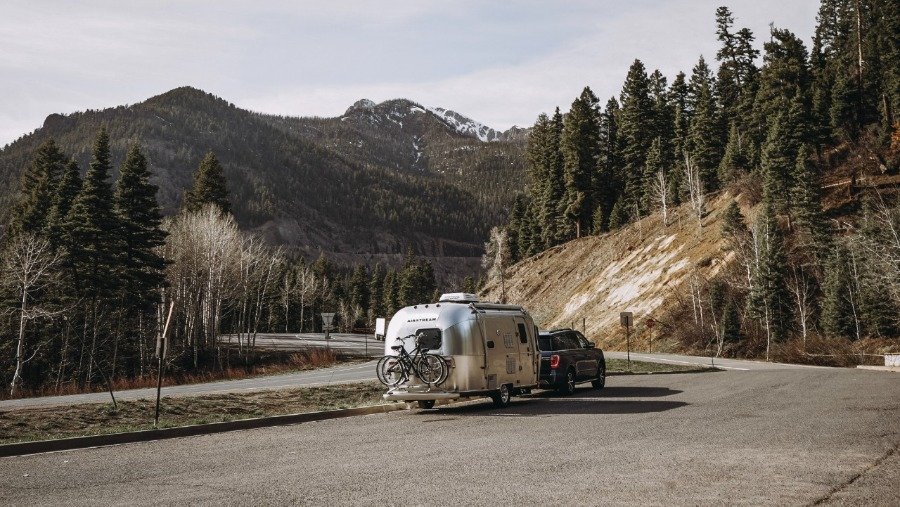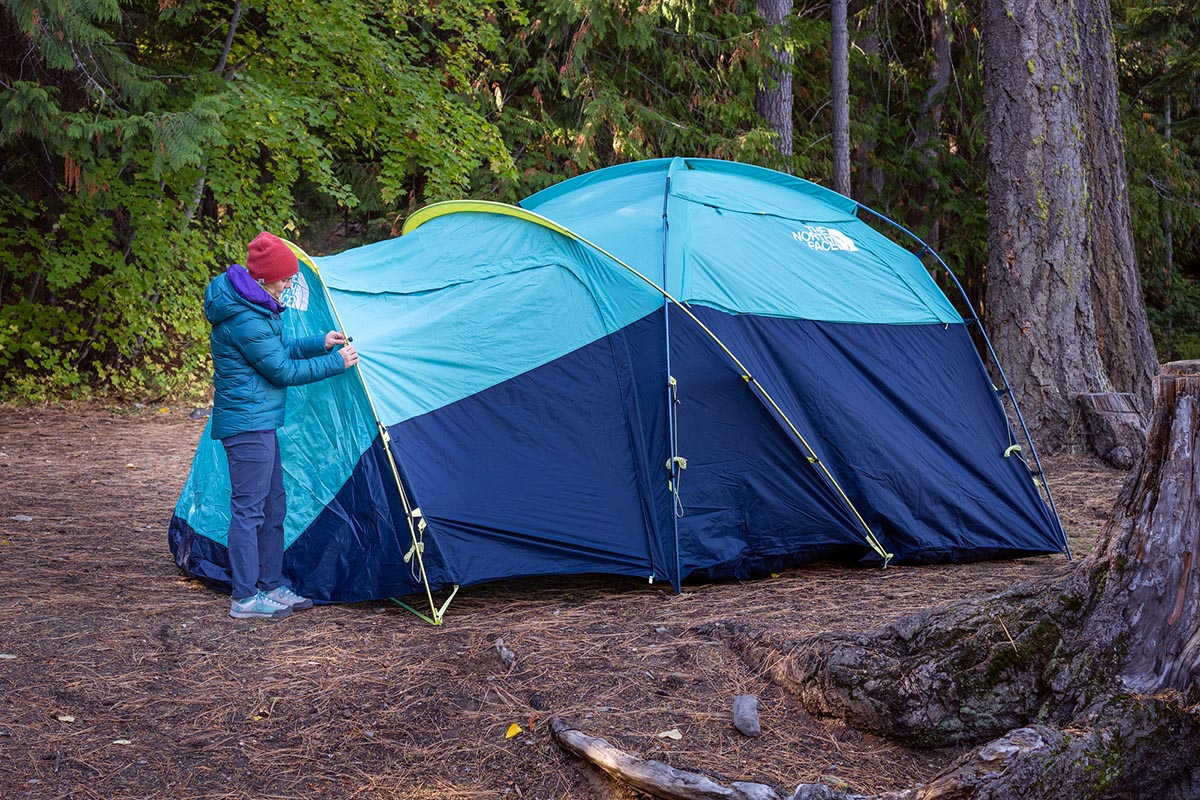Lightship L1: A Camper Trailer Designed for EVs
Ben Parker and Toby Kraus are the founders of Lightship. Ben spent 5 years as a battery engineer with Tesla and worked on the Model 3. Toby worked in Tesla’s finance and product management departments. They know innovation and electric vehicles.
The two partners said that they saw an opportunity in the trailer industry that “reminded them of the early days they’d seen working at Tesla.” While there had been some gradual changes in the industry, they thought that there was a complete lack of innovation.

“Inefficient, unreliable product designs and a power experience that relies on smelly, noisy, gas or propane generators fundamentally hinder the amazing experience of traveling in the outdoors,” is how Parker described the current camper and RV industry.
They wanted to build a model that was more aerodynamic. That was lighter. That had enough power to support a week of off-grid camping without using propane or other fossil fuels.
Lightship Gets Sleek Exterior

Lightship started with the L1’s exterior design. Running computer simulations from day one helped them to end up with a shape that could cut through the air. It has a sleeker collapsed road mode that lowers its frontal area. The L1 is also missing big aero bricks like a rooftop AC.
The company says that the L1 produces three times less aerodynamic drag than a conventional travel trailer. That’s half the overall drag, including rolling resistance and other aero hindrances.
Composite Construction Cuts Weight

Lightship is heavy on the “light” part of the name. The 27-foot RV weighs just 7,500 pounds when fully loaded.
How did they do that? By sweating every gram, Lightship said. The L1 uses composite materials and has high levels of structural optimization.
The curb weight is impressive enough for a rig with a full kitchen and a bathroom, but we haven’t yet talked about what might be Lightship’s coolest feature: an electric powertrain that lets the L1 propel itself.
80 kW Battery Gives Self-Propulsion, Off-Grid Power

That’s how Lightship can power the L1 for a week off the grid. And part of how the L1 can be so gentle on the tow vehicle’s range, electric or gasoline.
There is an 80kWh lithium-ion battery. That’s as much capacity as a long-range EV, and plenty to power a home for days. Lightship didn’t give a horsepower figure for the L1, because this is more about efficiency.
Lightship says the battery and motor will ensure a “300-mile range electric vehicle used to tow [the L1] remains a 300-mile range EV, and a 25-mpg gas truck remains a 25-mpg gas truck.” Despite the motor, it will be registered as a towable camper trailer.

A series of sensors mounted to the trailer help an onboard controller do its thing with the electric motor. That includes a force sensor in the hitch. Sort of like trailer brakes that can also be trailer goes.
If you get to your site with an empty battery, the system can be powered back up through up to 3 kW of solar power. That solar can add to the number of days you can stay in the great outdoors. Lightship says it also makes the L1 eligible for the Federal Solar Investment Tax Credit.
Lightship L1 Production Set to Start Next Year

The Lightship L1 starts from $125,000, which the company says is $118,400 after the solar credit. Lightship CEO Ben Parker says the company has focused heavily on product cost and supply chain strategy to help rein in costs.
For now, the only model is the L1, but Lightship plans to expand. Like Tesla, which launched the Roadster and Model S and then moved to more affordable vehicles, Lightship is starting with the L1 and plans even more mainstream products in the future.
There is a working prototype of the L1 now, and the company says it will show it off soon. Lightship plans production to start in late 2024 and is taking reservations now with a $500 deposit.






